
- This event has passed.
Buddhist Summer School 2024
January 13 - January 16
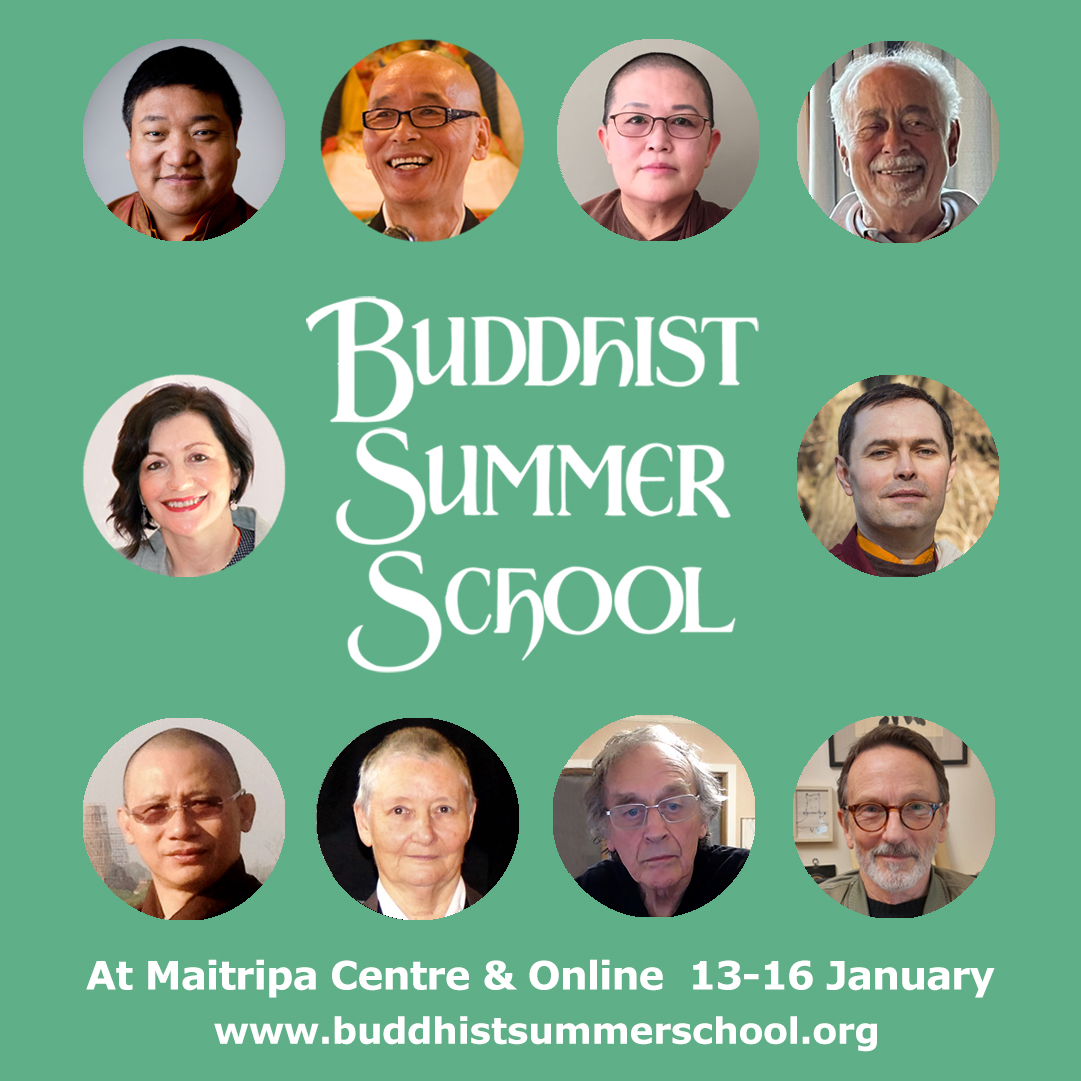
Annual Buddhist Summer School 2024
At Maitripa Centre & Online
13th – 16th January 2024
SUMMER SCHOOL TICKETS ARE OPEN FOR BOOKING!
(Bookings for accommodation have closed, In-person and Online course tickets are still open!)
Start your New Year by immersing yourself in teachings from Theravada, Tibetan and Zen Buddhism.
A rich tapestry of traditions has been woven by Asian cultures around the essence of the teachings of the Buddha who lived more than 2,500 years ago. The enduring nature of Buddhism is symptomatic of its integrity as a spiritual discipline that speaks to contemporary experience, especially in a world of increasing challenge and uncertainty.
The annual Buddhist Summer School has become one of the foremost gatherings in Australia for Buddhists from various traditions to discuss and explore topics related to philosophy, practice, and engagement with Western disciplines such as psychology. Bringing both insight and practical advice from each tradition, the Buddhist Summer School offers a genuinely ecumenical forum for exchange and learning.
In 2024, the Buddhist Summer School returns to Maitripa Contemplative Centre. Bringing together both local and internationally streamed (remote) teachers, the Buddhist Summer School will be simultaneously presented in-person and online.
Come and enjoy the beautiful environment of Maitripa Contemplative Centre or participate in the Buddhist Summer School from your home. Either way, the Summer School offers a diverse and rich program for both experienced practitioners and those new to Buddhism.all
THE PROGRAM
OPENING FORUM
Saturday morning – 9.30am-11.00am – Lecture Hall 1 and online.
The Opening Forum is an opportunity to hear the Buddhist Summer School speakers
engage in discussion of the relevance and application of Buddhism to one of life’s big
questions. There will be an opportunity for audience members to ask questions. Includes
both in-person and online speakers. The forum is free and open to all.
The Opening Forum Topic for the 41st Buddhist Summer School is:
Can AI Be Your Teacher?

Can AI possess or effectively communicate the sum total of human knowledge? What are the implications for the traditional role of the teacher-student relationship in Buddhism when all your questions may be answered by an AI chatbot?
To help explore this theme, here are some intersecting questions:
- How do we understand spirituality? And spiritual knowing in the age of AI?
- What kind of view of the human mind is being promoted through the promotion and projected capabilities of AI? Especially in terms of the human mind in relation to its limitations and potentiality?
- Is AI based on, or does it promote, the view of neurophysicalism – the reduction of human psychological and spiritual properties to physical properties and principles?
- What are the implications for Buddhism and the knowledge about Buddhism accessed via AI?
OUR ESTEEMED SPEAKERS
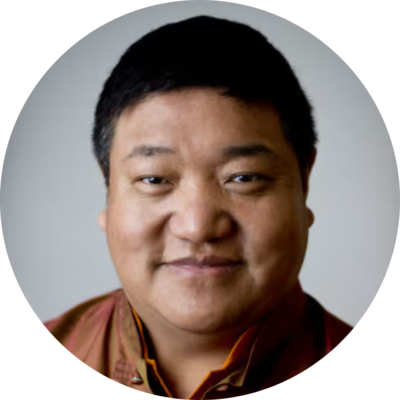
DZOGCHEN MASTER LONGCHENPA’S WISDOM ON SIX AMAZING THINGS YOU CAN DO WITH YOUR LIFE
(Streaming live from the U.S.A to Maitripa Centre and Online)
Orgyen Chowang Rinpoche
Meditation Master in the Nyingma lineage of the Buddhist tradition
Saturday Morning
Screened in Lecture Hall 1 (1 unit)
In this session, Orgyen Chowang Rinpoche will share Dzogchen Master Longchenpa’s advice on six amazing things you can experience in your life and in your practice to see the world in a totally fresh and extraordinary way.
Orgyen Chowang Rinpoche is a meditation master in the Nyingma lineage of the Buddhist tradition. He studied for nine years at Larung Gar in Serta, Eastern Tibet, with his teacher, Jigme Phuntsok Rinpoche, who is widely acknowledged as one of the greatest Dzogchen meditation masters of the twentieth century. A long-time resident of the San Francisco Bay Area, Orgyen Chowang Rinpoche is the founder and spiritual director of Pristine Mind Foundation and the author of Our Pristine Mind: A Practical Guide to Unconditional Happiness. For more information, visit www.pristinemind.org.
*Please note: The Venerable Orygen Chowang Rinpoche will not be appearing in-person, but will be Streaming live to Maitripa Centre and Online.
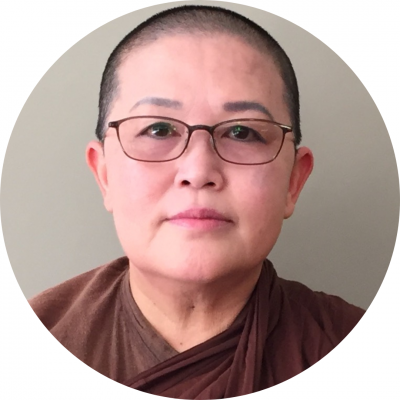
ENLIGHTENMENT IS A NATURAL PROCESS
(In-person and Online)
Venerable Ajahn Hāsapañña
Abbot of Dhammasara Nuns Monastery
Buddhist Forest Tradition
Saturday & Sunday Morning
Lecture Hall 2 (3 units)
Unit 1: Enlightenment is gradual training
For one who is virtuous, it is natural that non-regret arises … non-regret … joy … rapture … tranquil … pleasure … stillness … and naturally into Enlightenment.
Unit 2: Stopping the thinking mind
It is counterproductive to force the mind to stop thinking; body contemplation is a useful tool to practice present moment awareness. Once the mind is trained, you will be able to know when are lost in your thoughts and know to bring it back to the present moment.
Unit 3: Dhammadāyāda Sutta
Heirs in Dhamma (Middle Length discourse 3) “Bhikkhus, be my heirs in Dhamma, not my heirs in material things”.
Venerable Ajahn Hāsapañña was born in Ipoh, Malaysia in 1960. During her days as a layperson, she and her family generously supported Ajahn Sujato when he was practicing in Ipoh. The main influence in Ven. Ajahn Hāsapañña’s spiritual development is the monastic lifestyle of the forest tradition. When Ven. Ajahn Hāsapañña had developed enough courage and inspiration to become a nun, Ajahn Sujato pointed her to join Dhammasara Nuns Monastery which she joined in 2002, beginning her monastic training as an Anagarikaa (trainee nun keeping 8 precepts). She was then ordained as a Ten Precept Nun with Ajahn Vāyāma as her teacher. She subsequently took her higher ordination as a Bhikkhuni in 2009 with Ayya Tathāloka as her preceptor in a ceremony at Bodhinyana Monastery, WA, Australia. Currently, Ven. Ajahn Hāsapañña is the Abbot of Dhammasara Nuns Monastery and Assistant Spiritual Director of The Buddhist Society of Western Australia. She is also the Spiritual Director of Santi Forest Monastery in Bundanoon, NSW, a new branch monastery of Dhammasara. She is heavily involved in developing nuns communities as well as delivering Dhamma teaching to both nuns and lay people.

THE ART OF ACCOMMODATING WHATEVER ARISES IN MEDITATION:
Bringing the Mahamudra Approach to Practice
(In-person and Online)
Traleg Khandro
Long-time student & wife of the late Traleg Kyabgon Rinpoche IX
E-Vam Institute
Saturday & Sunday Afternoon (4 units)
Lecture Hall 1
Khandro will give commentary on aspects of Traleg Kyabgon Rinpoche’s teachings on the Mahamudra and Dzogchen approaches to meditation practice from the Tibetan Buddhist tradition. Central to these approaches is the practice of accommodating whatever arises in the mind during meditation while also building conviction that one’s Buddha Nature is already fully developed but is hidden behind our delusory states of mind. What are the positive outcomes of bringing this approach of accommodation and the belief in Buddha Nature into one’s meditation practice Contrasting how we normally relate to what arises in the mind with the Mahamudra/Dzogchen approach to meditation; this course will include guided meditations. Included in the discussion will be the significance of this approach in enriching our relationship with beliefs and sense of self.
Traleg Khandro (Felicity), long-time student and wife to the late Traleg Kyabgon Rinpoche IX, is a Director at E-Vam Institute in Melbourne and the U.S, and runsm Shogam Publications, Traleg Rinpoche’s publishing arm. Khandro studied Buddhism under Traleg Rinpoche’s guidance for many years and has undertaken numerous long meditation retreats. Khandro has given commentary on Rinpoche’s teachings in Australia, America, Europe, the U.K., and South East Asia. Khandro has a degree in Psychology.
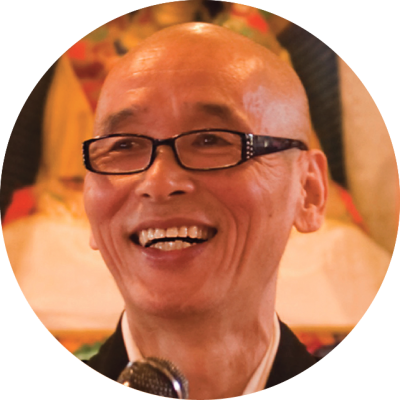
ZEN MASTER DOGEN’S TEACHING:
Gakudo Yojin Shu- On Learning the Way with an Earnest Mind
(In-person and Online)
Ekai Korematsu Roshi
Soto Zen Master
Jikishoan Zen Buddhist Community
Saturday & Sunday Afternoon (4 units)
Lecture Hall 2
Ekai Korematsu Roshi sheds light on Zen Master Dogen’s teachings in Gakudo Yojin Shu through four insightful sessions. The “Collection of Teachings on Learning the Way with an Earnest Mind”, spans ten chapters, addressing pivotal aspects of Zen practice and the journey to enlightenment. From “Cultivating the Bodhi Mind” to “Accepting and Undertaking Responsibilities Directly,” these teachings provide profound guidance. Delve into the essence of observing the true Dharma, realising the Buddha Way through dedicated practice, and avoiding a mind seeking gain, in the pursuit of Buddha Dharma. Journey through the practices, conduct, and responsibilities of Zen monks, with a particular emphasis on seeking a true teacher and practicing Zen for those aspiring to renunciation. Join this exploration of wisdom as the “Collection of Teachings” serves as a guiding light for those earnestly navigating the profound terrain of Zen on the path to enlightenment.
Ekai Korematsu Roshi has been serving as the Abbot and Teacher of Jikishoan Zen Buddhist Community in Melbourne since 1999. Born in Japan in 1948, Roshi pursued studies in humanities and Buddhism across Denmark, the USA, and Japan. He was ordained by Kobun Chino Roshi at Haiku Zendo in Los Altos, California, in 1976 and later received Dharma transmission from Ikko Narasaki Roshi in Japan at Zuioji Monastery in 1986. His formal training spanned twelve years in three Zen monasteries: Eiheiji, Zuioji, and Shogoji. His Buddhist education is rooted in Soto Zen Buddhism.


WHY BE A BUDDHIST?
Perspectives across the lifespan
Sam Bercholz (Streaming live from California U.S. to Maitripa Centre and Online)
Lama Jinpa (Streaming live to Maitripa Centre and Online)
Sunday Morning (2 units)
Lecture Hall 1
No matter our life stage, the Buddhist path offers much enrichment. At the same time, there can be particular life challenges at different points that need to be navigated. In this course, two practitioners at different stages of their life, Lama Jinpa and Sam Bercholz respectively, will provide insights into the role and meaning of Buddhism from the younger and older age perspectives. Whether young, old, or in between, this course offers an intimate reflection on the potency of Buddhism in relation to the challenges and opportunities across the lifespan. Please note this course is in two parts, with each speaker presenting separately.
Lama Jinpa (Aaron) is a longtime student of Khenpo Karthar Rinpoche. He completed the traditional Karma Kagyu three-year retreat at Karme Ling Retreat Center in Delhi NY under Rinpoche’s guidance. Since this time, he has served Rinpoche and the KTD community by teaching regularly at KTCs. Lama Jinpa is a householder practitioner and enjoys practicing at home with his family. Lama Jinpa regularly gives courses for E-Vam Buddhist Institute U.S. and is a valued presenter always bringing such insight and warmth to his courses.
Sam Bercholz, see biography below.

Sam Bercholz
(Streaming live from the California U.S. to Maitripa Centre and Online)
REPLACING BAD HABITS WITH GOOD HABITS, UNTIL THERE ARE NO HABITS
Monday Morning & Afternoon (2 units)
Lecture Hall 1
At the core of Buddhist teachings is a philosophy and practices that loosen one’s ties to the burdens of habitual thinking and activity, including addictions of all kinds. These talks will center on practical advice based on the Buddhist teachings and the speaker’s experience of putting these into practice, included will be advice on how to actually make positive changes in one’s life to become a Dharmic person so that one can benefit others as a true bodhisattva. Also included will be the Vajrayana methods of how to attain realisation in this life.
THE VIEW THAT LEADS TO LIBERATION
Tuesday Morning & Afternoon (2 units)
Lecture Hall 1
Buddhism teaches that enlightenment is our natural state; the problem is that we do not recognise this state, owing to the mind’s confusion about its true nature. For our practice to be successful, we must have the enlightened view, so it is important to understand exactly what is meant by the two extremes of eternalism and nihilism. As we so often see, with tragic results, “almost all eternalists decide that the ultimate basis of truth is believing only in their own god.” Nihilists, on the other hand, think that everything ceases at death. They believe only in what can be perceived by the senses, and they do not accept karmic causes and results beyond this life. The middle way is not a position between these two extremes, nor is it a third, neutral state. It goes entirely beyond them both. Such a view is “always based on the state of immeasurable stainless space,” while at the same time it “never denies phenomena.”
Sam Bercholz founded Shambhala Publications in 1969. He has been a Buddhist practitioner since the age of 19 and was ordained as a Zen Buddhist priest in the Chogye Zen Order of Korea. He met Chogyam Trungpa Rinpoche in 1970 and was a close student of his for 17 years. Trungpa Rinpoche empowered him to teach meditation, Buddhadharma including Vajrayana, and the Shambhala teachings. After Trungpa Rinpoche’s passing, he auspiciously became a disciple of Thinley Norbu Rinpoche. He received the teachings and empowerments of the Nyingma, particularly the Dudjom Tersar and was empowered to transmit what he had learned. He was invited by Traleg Kyabgon Rinpoche to teach what he had learned from his masters, and has been doing so for over two decades at the various Kagyu Evam Institute Centers in Australia, New Zealand, and the U.S. He is the author of A Guided Tour of Hell and co-editor of the international bestseller The Buddha and His Teachings (originally published as Entering the Stream).
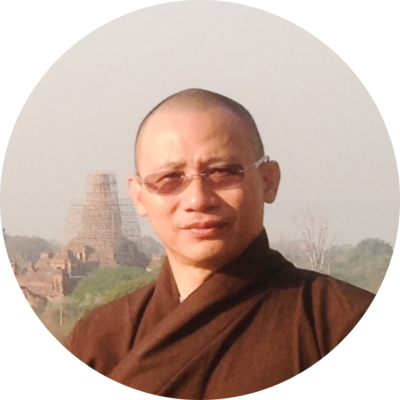
BUDDHISM FOR MODERN PEOPLE IN THE MODERN WORLD:
FROM UNDERSTANDING TO FAITH ON THE PATH
Venerable Thich Linh Than
Abbot of Nalanda Institute Australia
Monday & Tuesday Morning (4 units)
Lecture Hall 2
Unit 1 & 2: From Understanding to Faith on the Path
In the modern world, introducing Buddhism simply through ‘faith’ or as a belief system is now rather out of date. However, people still require a proper introduction to Buddhism to help develop the right attitude. Encouraging curiosity and even welcoming people to come with doubts and questions about the Triple Gems is far more effective. Faith comes after thorough understanding, and this is the way to avoid blind faith since blind faith can lead to one of the two extremes.
Participants are encouraged to bring their questions and doubts as we explore this relationship between understanding and faith.
Unit 3 & 4: Sustainable Relationships from a Buddhist View
In the midst of the troubled world full of sufferings and turmoils overwhelming human capacities, people are becoming increasingly reactive through aggression and impatient with their life conditions. Human relationships are so fragile. In these sessions, we will explore the questions: How can a Buddhist apply the ancient teachings of the Buddha to our modern world? How can we develop relationships that can be sustainable between oneself as an individual and society?
Ordained with the Dharma name Thich Linh Tan, Venerable fled Vietnam in 1983 as a refugee, as one of the 2 million people who escaped Vietnam after 1975. Even though born into a Buddhist family by tradition, Venerable Thich Linh Tan took refuge in the Triple Gems and became an upasaka in 1991 and studied the
Dharma, eventually becoming a monk and studying under Most Venerable Thich Huyen Vi, in France. Venerable Thich Linh Tan studied Sanskrit and Pali in India and then returned to Melbourne and founded Nalanda Institute UK and Nalanda Institute Australia in 2012 and 2013 respectively. Venerable Thich Linh Tan conducts Dharma classes in both Vietnamese and English with a focus on supporting laity in the pursuit of the Dharma.
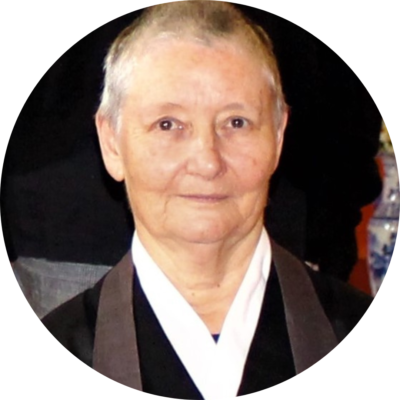
Zen Mind, Beginner’s Mind: An Introduction to Zen Meditation
(In-person and Online)
Teishin Shona Innes
Senior Teacher
Jikishoan Zen Buddhist Community
Tuesday Afternoon (2 units)
Lecture Hall 2
In these sessions, the three forms of Zen meditation – bowing, sitting and walking – will be introduced and practiced. The classic text, Zen Mind, Beginners Mind by Shunryu Suzuki Roshi, will be used to support this essential practice through reading, reflection, and discussion.
Teishin Shona has been a student of Ekai Korematsu Roshi, Abbot of Tokozan Jikishoan for the last 20 years. Prior to that she practiced for 9 years under the guidance of the Venerable Traleg Kyabgon Rinpoche. Teishin has completed 14 years in Jikishoan’s Integrated Buddhist Studies (IBS) and has been the coordinator of Main Course B (Community Practice) for ten years.
Teishin completed Head Student training in 2013 and received Bodhisattva Initiation (Lay Ordination) in 2014. She has completed Jikishoan’s 3-year Assistant Teacher Training. Teishin received novice monastic ordination (Bodhisattva precepts) in Japan from Seido Suzuki Roshi, Abbot of Toshoji, on the 11th of April 2023.

PSYCHOLOGICAL INSIGHTS FROM BUDDIST UNDERSTANDINGS OF CONSCIOUSNESS: Applications for mental health, aging and death
(In-person and Online)
Philip Greenway PHD
Psychology
Monday & Tuesday Afternoon (4 units)
Lecture Hall 1
Buddhism helps extend our understandings of consciousness and invites us to consider ourselves from a larger perspective. From a psychological point of view, it can provide insights into managing our well-being, especially in relation to dealing with aging and death. Drawing on neuro-psychoanalytic theory and research, this course explores potential intersections with Buddhism as well as offering practical exercises for everyday life.
Philip Greenway studied psychology and philosophy at Edinburgh University and for a PhD in psychology at Louvain University in Belgium. He taught psychology at Aberdeen University before coming to Monash University where he taught and researched counselling and personality assessment. Throughout he maintained an interest in philosophy, especially phenomenology. He taught in a Buddhist psychotherapy course for about ten years for Sophia College and has been in private practice as a clinical psychologist since 1995.
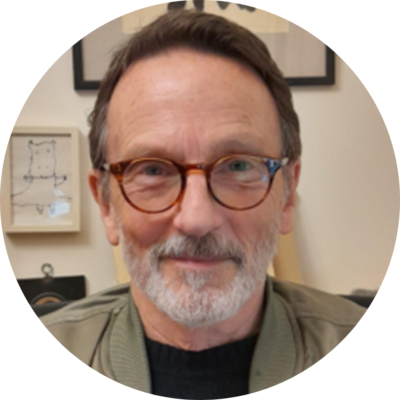
JAPANESE BRUSH CALLIGRAPHY: AN INTRODUCTION
(In-person only)
Jinesh Wilmot
Japanese Brush Calligraphy
Monday Afternoon (2 units)
Lecture Hall 1
Using a mindful approach, we will write some of the basic Chinese & Japanese characters (Kanji) using brush and ink (Sumi); exploring three forms of writing, known in Japanese as Kaisho, Gyosho and Sosho. No previous experience of brush calligraphy is necessary, only the desire to explore this beautiful and expressive way of writing. All materials (brush, ink and paper) will be supplied.
Jinesh’s journey with Japanese brush calligraphy (Shōdō) began over thirty years ago. At the time he began studying Zen Jinesh felt that, coming from an arts-related background, it would be beneficial to study a Zen-related art form; he chose Japanese brush calligraphy. From the very first lesson, after experiencing the beauty and immediacy of the form…and smelling the distinctive fragrance of the pine-soot ink, he knew he was ‘hooked’. Jinesh holds a 6th Dan grade in the Shōchosha School of Shōdō (Calligraphy).
THE PROGRAM TIMETABLE

THE VENUE
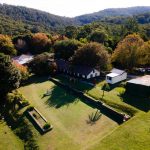
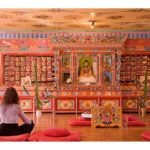

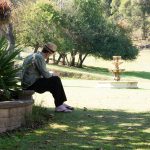
MAITRIPA CONTEMPLATIVE CENTRE
Come and enjoy the Summer School experience at the beautiful Maitripa Contemplative Centre. Established by Traleg Rinpoche IX, Maitripa Contemplative Centre is surrounded by the beautiful lush Toolangi forest amongst the upper Yarra Valley, amongst beautiful diverse and established gardens, vibrant birdlife and the hundreds of acres of surrounding mountain ash forests.
Maitripa Contemplative Centre is 5 minutes from Healesville Town and just 75 minutes from Melbourne CBD.
Catering
Delicious and healthy vegetarian food will be available to purchase onsite, with the opportunity to enjoy a barister coffee and cake at Dogen’s cafe during the day and relax with a glass of wine at Apsara bar in the evening. All amidst a conducive environment of like-minded people, coming together to learn from the profound resource of practice and wisdom that the traditions of Buddhism have to offer.
OR…

ONLINE VIA ZOOM- FROM HOME!
The Buddhist Summer School offers an interactive online experience, with the ability to ask Teachers questions.
Online participants are very welcome and can enjoy the Buddhist Summer School from the comfort of their own homes!
TICKET INFO & BOOKINGS
Online & In-Person Course costs: Full Summer School program tickets: $280 • Full day pass: $80 • Half day pass: $45
Course Discounts: HCC Holder 10% (code: concession) – Members 10% (code: member) Under 35 30% (code: under35) Students 30% (code: student)
All prices in Australian Dollars (AUD)
Accommodation at Maitripa Centre: (ACCOMMODATION BOOKINGS HAVE NOW CLOSED)
Full Summer School: $240 • Single Room Accommodation for one night: $80 • Twin Room Accommodation for one night: $155
*Please note that meals are available to be purchased on site. Facilities for self-catering are not available
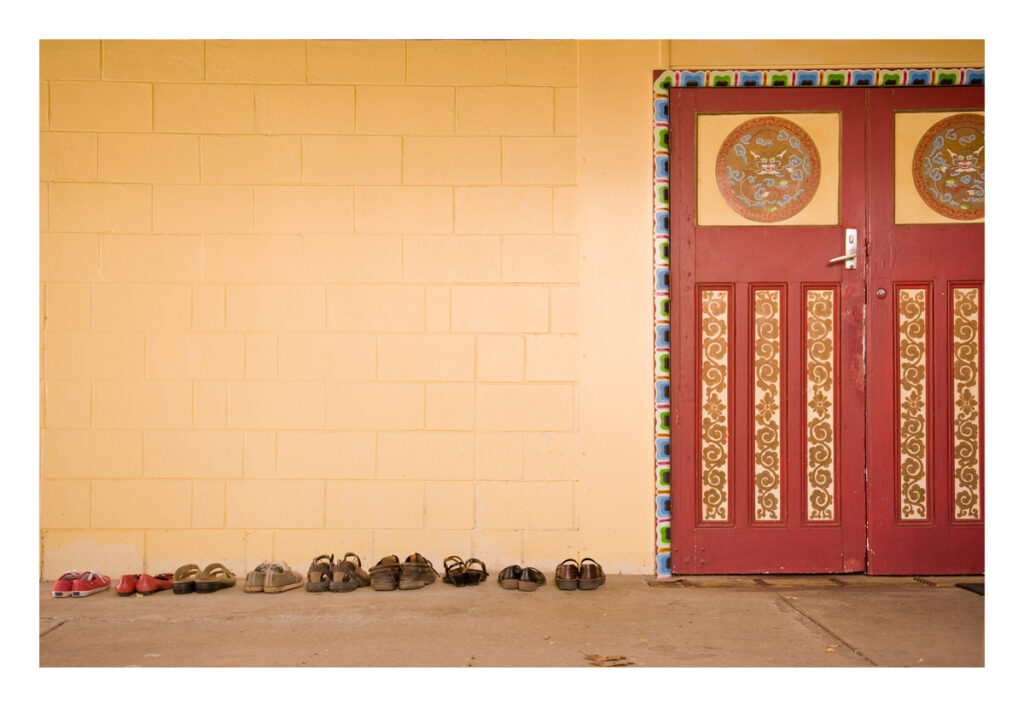
Details
- Start:
- January 13
- End:
- January 16
- Website:
- https://www.buddhistsummerschool.org/
